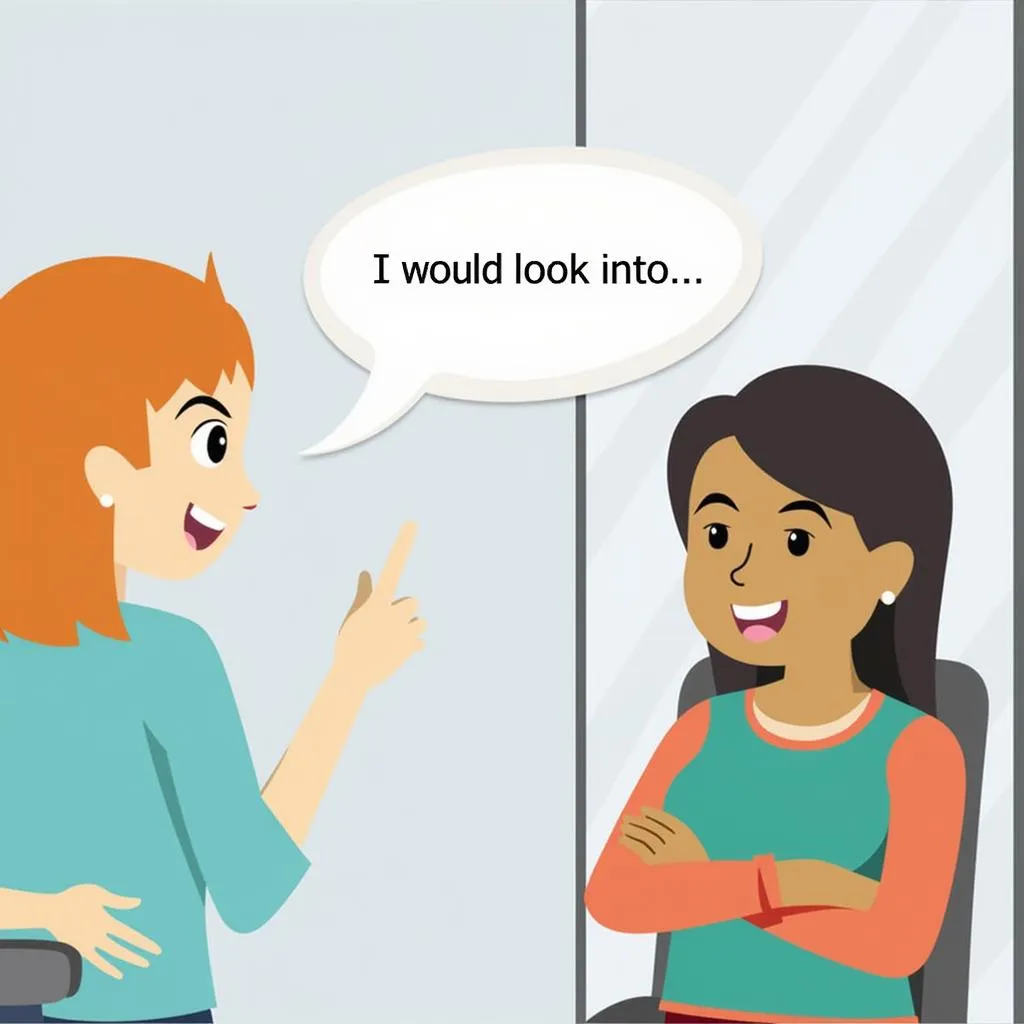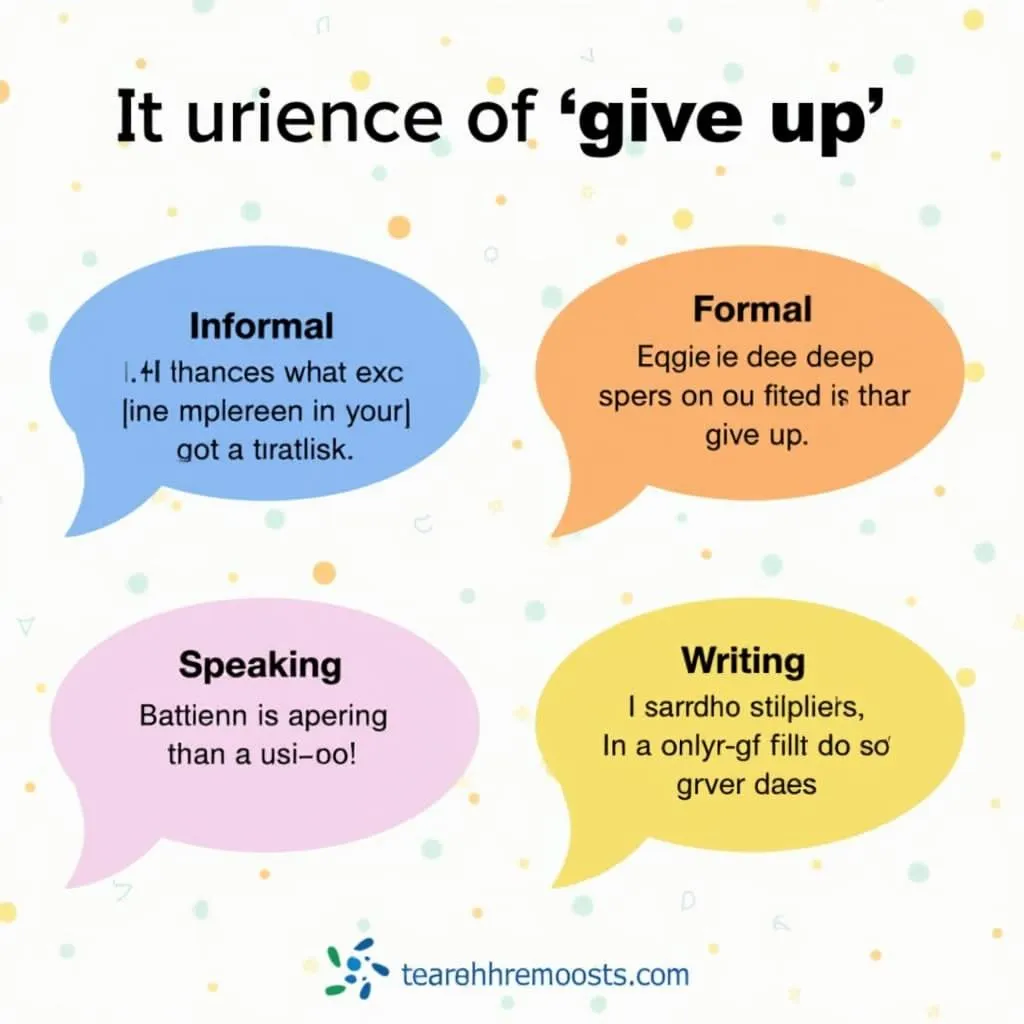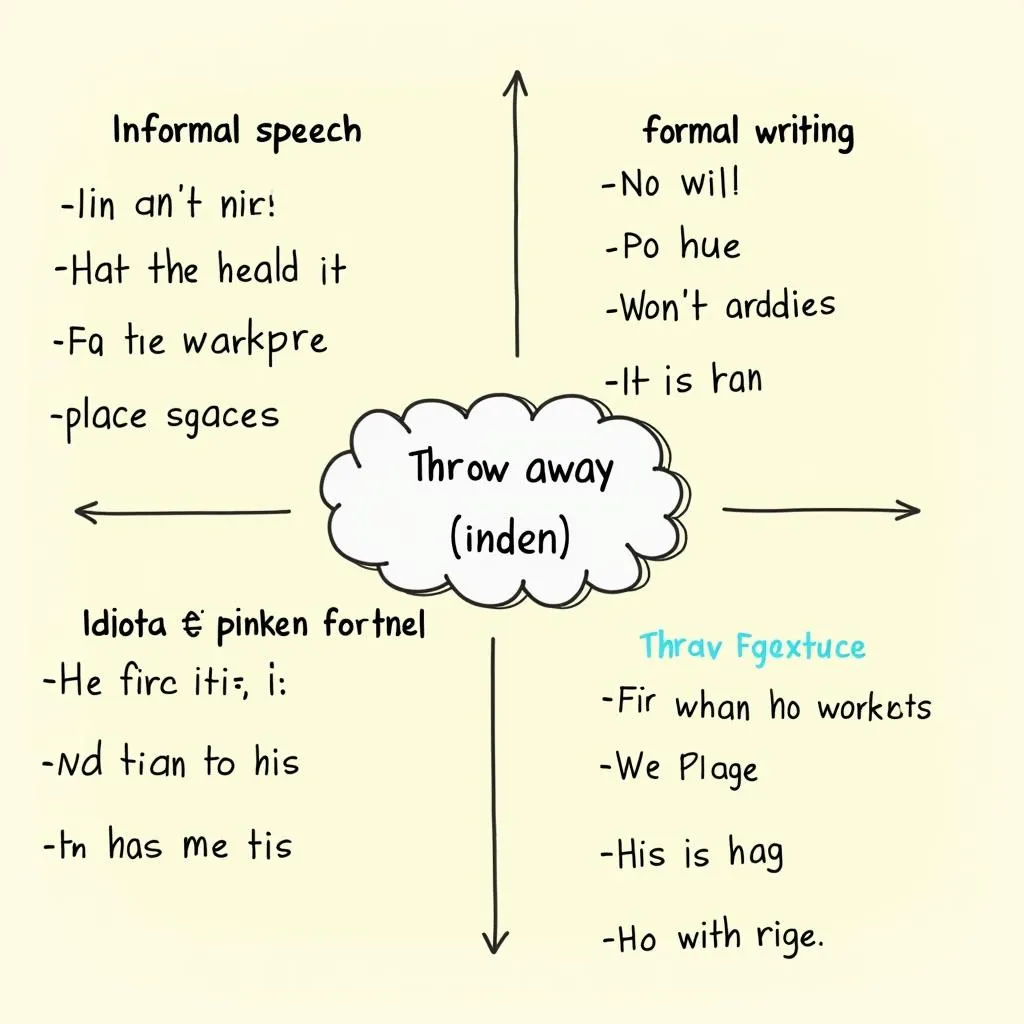Understanding ‘Zoom in on’ and Its Significance in IELTS
The phrasal verb ‘zoom in on’ is a crucial linguistic tool that can significantly enhance your performance in the IELTS exam. This versatile expression not only adds depth to your vocabulary but also demonstrates a nuanced understanding of English language usage, which is highly valued by IELTS examiners.
Nội dung bài viết
- Understanding ‘Zoom in on’ and Its Significance in IELTS
- Definition and Explanation
- Usage in Context
- Grammatical Analysis
- Application in IELTS
- In IELTS Speaking:
- In IELTS Writing:
- Related Phrasal Verbs
- Practice Exercises
- Fill in the Blanks
- Sentence Rewriting
- Answers and Explanations
- Memorization Tips
- Common Mistakes and How to Avoid Them
- Conclusion
Definition and Explanation
‘Zoom in on’ primarily means to focus closely on a particular subject or detail. It originates from photography and video terminology but has expanded its usage to more abstract contexts. In essence, it implies:
- To examine or investigate something in detail
- To concentrate on a specific aspect of a larger issue
- To bring attention to a particular point or topic
Synonyms include “focus on,” “concentrate on,” or “highlight.”
Usage in Context
Consider these examples to understand how ‘zoom in on’ can be applied in various situations:
- “The documentary zoomed in on the environmental impact of plastic waste.”
- “During the interview, the employer zoomed in on my leadership experience.”
- “Scientists are zooming in on the genetic factors that contribute to longevity.”
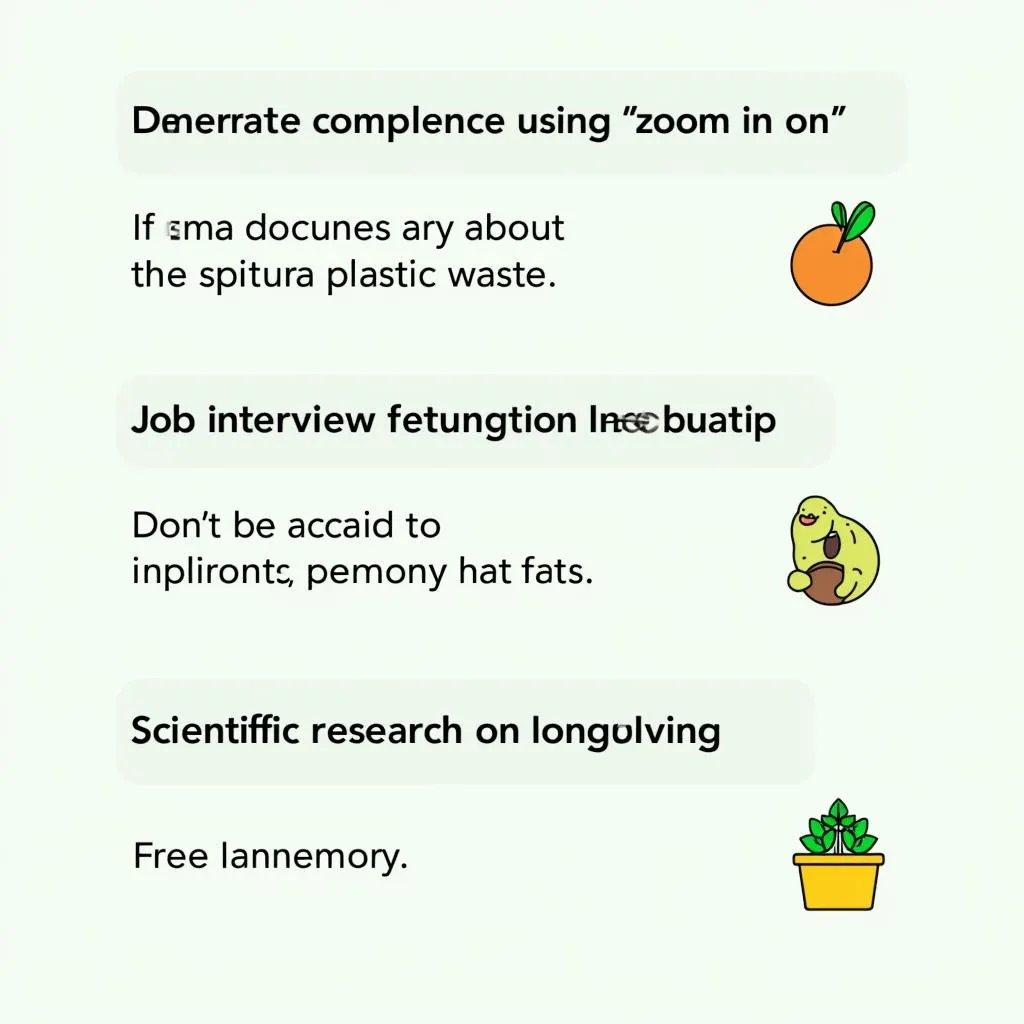 Examples of 'Zoom in on' usage in different contexts
Examples of 'Zoom in on' usage in different contexts
Grammatical Analysis
‘Zoom in on’ is an inseparable phrasal verb, meaning no words can be inserted between its components. It’s typically followed by a noun or gerund:
- Correct: “Let’s zoom in on the problem areas.”
- Incorrect: “Let’s zoom the problem areas in on.”
Application in IELTS
In IELTS Speaking:
‘Zoom in on’ can be effectively used to demonstrate advanced vocabulary and precise expression. For example:
Question: “Tell me about a significant event in your country’s history.”
Sample Answer: “I’d like to zoom in on the economic reforms of the 1980s, which dramatically transformed our nation’s financial landscape.”
In IELTS Writing:
This phrasal verb can add sophistication to your essays. For instance:
“While there are many factors contributing to climate change, this essay will zoom in on the role of deforestation.”
Remember to use it judiciously, as overuse might appear unnatural.
Related Phrasal Verbs
-
Focus on /ˈfəʊkəs ɒn/: To concentrate on something specific
Example: “The research focuses on renewable energy sources.” -
Hone in on /həʊn ɪn ɒn/: To concentrate on and clarify a particular point
Example: “The detective honed in on the suspect’s alibi.” -
Zero in on /ˈzɪərəʊ ɪn ɒn/: To direct all attention to one particular person or thing
Example: “The charity zeroed in on providing clean water to remote villages.” -
Narrow down /ˈnærəʊ daʊn/: To reduce the number of possibilities
Example: “We’ve narrowed down our vacation options to three destinations.” -
Single out /ˈsɪŋɡl aʊt/: To choose or identify one person or thing from a group
Example: “The teacher singled out Sarah for her exceptional essay.”
Practice Exercises
Fill in the Blanks
- The researcher decided to __ __ __ the effects of social media on mental health.
- In his speech, the politician __ __ __ the issue of unemployment.
- The documentary __ __ __ the life of marine animals.
- We need to __ __ __ the root causes of this problem.
- The investigator __ __ __ the suspect’s alibi.
- The company wants to __ __ its marketing strategy for the upcoming quarter.
- Let’s __ __ the key points of the presentation.
- The committee __ __ three candidates for the position.
- The artist likes to __ __ minute details in her paintings.
- The report __ __ __ the environmental impact of fast fashion.
Sentence Rewriting
-
The study concentrated on the effects of caffeine on sleep patterns.
Rewrite: The study __ __ __ the effects of caffeine on sleep patterns. -
We need to focus our attention on improving customer service.
Rewrite: We need to __ __ __ improving customer service. -
The documentary highlighted the plight of endangered species.
Rewrite: The documentary __ __ __ the plight of endangered species. -
Let’s narrow our discussion to the most pressing issues.
Rewrite: Let’s __ __ __ the most pressing issues. -
The analyst concentrated on the company’s financial performance over the last quarter.
Rewrite: The analyst __ __ __ the company’s financial performance over the last quarter. -
The detective is focusing his investigation on the suspect’s whereabouts on the night of the crime.
Rewrite: The detective is __ __ __ the suspect’s whereabouts on the night of the crime. -
The photographer captured the intricate details of the butterfly’s wings.
Rewrite: The photographer __ __ __ the intricate details of the butterfly’s wings. -
The committee has identified three key areas for improvement.
Rewrite: The committee has __ __ __ three key areas for improvement. -
In her presentation, she emphasized the importance of sustainable practices.
Rewrite: In her presentation, she __ __ __ the importance of sustainable practices. -
The researchers are examining the long-term effects of the new drug.
Rewrite: The researchers are __ __ __ the long-term effects of the new drug.
Answers and Explanations
Fill in the Blanks:
- zoom in on
- zoomed in on
- zoomed in on
- zoom in on
- zoomed in on
- focus on (alternative phrasal verb)
- zero in on (alternative phrasal verb)
- singled out (alternative phrasal verb)
- zoom in on
- zoomed in on
Sentence Rewriting:
- The study zoomed in on the effects of caffeine on sleep patterns.
- We need to zoom in on improving customer service.
- The documentary zoomed in on the plight of endangered species.
- Let’s zoom in on the most pressing issues.
- The analyst zoomed in on the company’s financial performance over the last quarter.
- The detective is zooming in on the suspect’s whereabouts on the night of the crime.
- The photographer zoomed in on the intricate details of the butterfly’s wings.
- The committee has zoomed in on three key areas for improvement.
- In her presentation, she zoomed in on the importance of sustainable practices.
- The researchers are zooming in on the long-term effects of the new drug.
Explanations:
These exercises demonstrate the versatility of ‘zoom in on’ and its related phrasal verbs. They show how these expressions can be used to describe focused attention, detailed examination, or highlighting specific aspects of a topic. The rewriting exercises, in particular, illustrate how ‘zoom in on’ can often replace other verbs or phrases to create more precise and sophisticated sentences.
Memorization Tips
To remember ‘zoom in on’, visualize a camera lens focusing on a specific detail. This mental image reinforces the idea of concentrating on a particular aspect of a larger picture.
You can also create a mnemonic: “Zealously Observe Our Main Interest” – ZOOM IN.
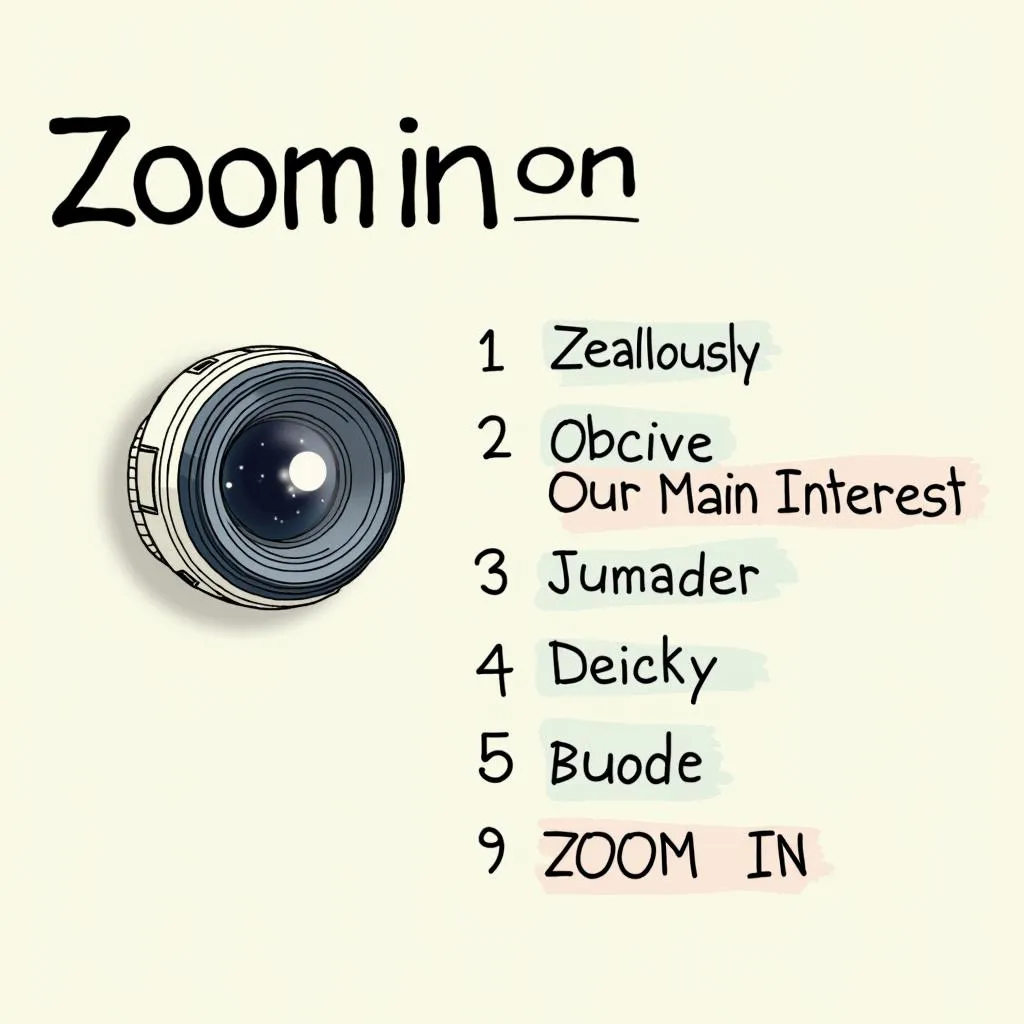 Visual aids for remembering 'Zoom in on'
Visual aids for remembering 'Zoom in on'
Common Mistakes and How to Avoid Them
-
Incorrect separation: Remember, ‘zoom in on’ is inseparable.
Incorrect: “Let’s zoom the issue in on.”
Correct: “Let’s zoom in on the issue.” -
Omitting ‘on’: Always include ‘on’ after ‘zoom in’.
Incorrect: “We need to zoom in the problem.”
Correct: “We need to zoom in on the problem.” -
Overuse: While it’s a useful phrase, avoid overusing it. Vary your language with synonyms like ‘focus on’ or ‘concentrate on’ to maintain a natural flow.
Conclusion
Mastering ‘zoom in on’ and its related phrasal verbs can significantly enhance your IELTS performance. By incorporating this expression into your language repertoire, you demonstrate a sophisticated command of English, which is crucial for achieving high scores in both the speaking and writing sections of the IELTS exam. Remember to practice using this phrasal verb in various contexts to internalize its usage and apply it naturally during your test. For more tips on improving your IELTS performance, check out our guide on how to focus on key areas in IELTS preparation.
